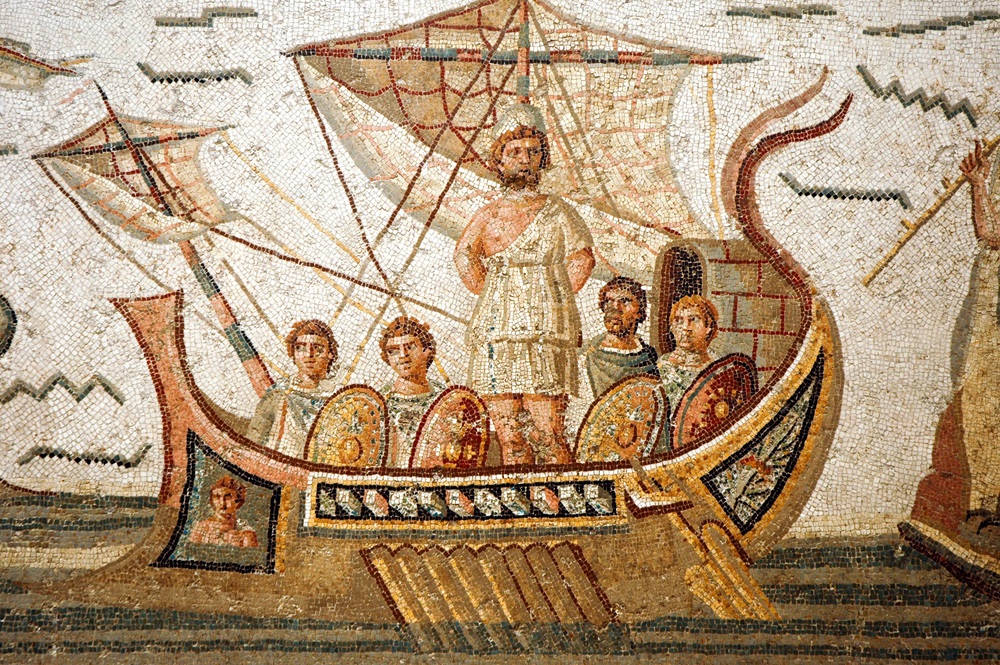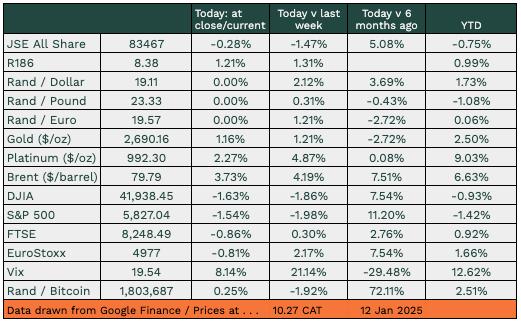What is it about foreign policy and elephants? It's perhaps not the most common analogy cited when discussing foreign policy - maybe chess is the most frequently used as in, “Diplomacy is the art of knowing when to push a pawn or protect the queen.”
But, lordy oh lordy, how appropriate is the elephant metaphor for diplomacy now? The Trumpification of foreign policy easily elicits the three most famous elephant analogies.
The first was made by Pierre Trudeau, Prime Minister of Canada (father of Justin who just stood down from the position his father held) in 1969. He told the National Press Club in Washington, DC that "...living next to you is in some ways like sleeping with an elephant. No matter how friendly and even-tempered is the beast, if I can call it that, one is affected by every twitch and grunt."
The second was made by former Chancellor of Germany Helmut Kohl, who didn’t reference the US but was clearly talking about it when he said, "Foreign policy is like a canoe. You sit in it, and you try to avoid the elephants." He might have been talking about France. Or the UK. But it's an apt analogy for dealing with the US and, in some ways, reflects Kohl’s pragmatic approach: international relations are a complex affair and navigating the choppy waters can be like having an elephant on board with you in a canoe; you are always worried the whole show is going to tip you over.
The third one is the old African saying popularised by Jomo Kenyatta, the first President of Kenya, who said, "When elephants fight, it is the grass that suffers." One doesn’t necessarily like to disagree with such an august figure as Kenyatta, but in my limited experience, when elephants fight, quite often, it's the elephants that suffer. But one gets his meaning: geopolitical struggles between major powers can mean small nations or ordinary people get inadvertently thumped. There is an aspect of collateral damage to international relations.
And then (I can't resist): How do you know if there’s an elephant in your fridge? You see footprints in the butter. Yes, the stand-out feature of elephants is their size, but I think elephants generally get bad press; they are almost absurdly docile and peaceful, normally, for something so large. This is perhaps what you would expect from an animal that needs to spend three-quarters of the day eating to maintain its not-inconsiderable bulk.
Anyway, the US president-elect has been, as we all know, in full-on elephant mode in the foreign policy arena, crashing through norms and traditions, stomping on friends and absolutely thrilling the enemies of the US.
Similarly, South Africa’s foreign policy - once normalised and praised (for the most part) under Nelson Mandela - has devolved into what can only be described as a diplomatic trainwreck. From cosying up to authoritarian leaders like Muammar Gaddafi to refusing to arrest al-Bashir to aligning with rogue states such as Russia and Iran, SA’s decisions seem less about strategy and more about outdated struggle credentials.
Perhaps most visible in the Department of Foreign Affairs, once a centre of professionalism and diplomacy, it is now an institution that has become a dumping ground for ageing and failed politicians. Diplomatic posts very rarely if ever go these days to professional diplomats.
Just to take one example, SA’s high commissioner to the UK was recently Thembi Tambo, daughter of Oliver Tambo. Her Wikipedia page lists her achievements as having been part of the anti-apartheid movement. That’s it. I am not making this up. Gone are the days when dynamic up-and-coming ANC cadres like Cheryl Carolus occupied the Court of St James.
SA's current ambassador to China, Siyabonga Cwele, for example, is one of SA's many ambassadors who are under a cloud in SA. Cwele was a veteran cabinet member, and was Minister of Intelligence under Kgalema Motlanthe, minister of State Security under Jacob Zuma, minister of Telecommunications and briefly Minister of Home Affairs.
But when the Zondo Commission was finalised he was booted because of testimony, with which the commission largely agreed, that he had obstructed investigations into the influence of the Guptas and Arthur Fraser's use of a slush fund to operate the controversial Principal Agent Network.
So then of course he was given one of the three most important diplomatic posts on offer to SA diplomats because getting a disgraced politician out of the country was more important than SA's diplomatic goals associated with its largest trading partner.
Why is SA doing this? My theory is that the ANC is actually just not particularly interested in foreign affairs except as a vehicle for signalling its notional revolutionary credentials. It's a low-cost method of squaring off the radicals in the organisation. And the result is that SA’s country diplomats don’t have a specific mandate except to attend cocktail parties. They certainly don’t consider part of their function to be improving trade ties.
Well, this is all coming home to roost.
The Wall Street Journal just published an editorial by South African-born foreign policy expert Mark Dubowitz calling for SA to get the “Trump Treatment”. Dubowitz, the CEO of something called the Foundation for Defense of Democracies, and a colleague in the organisation Elaine Dezenski catalogue SA’s diplomatic adventures with rogue states that we know and love so well. And then they call for the US president-elect Donald Trump to “seize this rare chance to halt South Africa’s decline by delivering an ultimatum: The US will support the country’s growth through investments and diplomacy but continued alignment with China, Russia, Iran, and Hamas will bring swift consequences”.
“If the government persists with its reckless foreign policy, Mr. Trump should consider slashing American trade benefits, isolating Pretoria diplomatically, and imposing sanctions against ANC leaders that ally with America’s adversaries and engage in corruption”.
How much of this is just blather, it's hard to tell - but even if it's blather, it's blather you don’t want. In some ways, this is intrinsically part of the Trump methodology: keep them off-balance and focused on crazy proposals like buying Greenland. This is Trump diplomacy in a nutshell: chaotic, unpredictable, and oddly effective in keeping opponents off balance. Meanwhile, the US is putting thousands of satellites in orbit, spending gazillions on improving its military, and doing all the consequential stuff in the background.
The problem is that when you are in a canoe with an elephant, it's hard to keep steady. And when the elephants start fighting, the grass is at risk.
And so on. 💥
From the department of unintended consequences

From the department of adventurous holidays

From the department of home affairs

Great piece (first of three), as always, from Tyler Cowen on the economics of the Odyssey
From the department of jobs that didn't exist, like, yesterday

Not surprisingly, AI related jobs are growing like crazy. But would you believe that physical therapist and travel advisor make the top five?

Thanks for reading this post - please to pass it on to anyone you might think would be interested, and ask them to add their email in the bloc above. Its free for the time being, but please do consider subscribing for $2 a month. In order to keep this going, I need to eat!
💥 💥 💥






Join the conversation